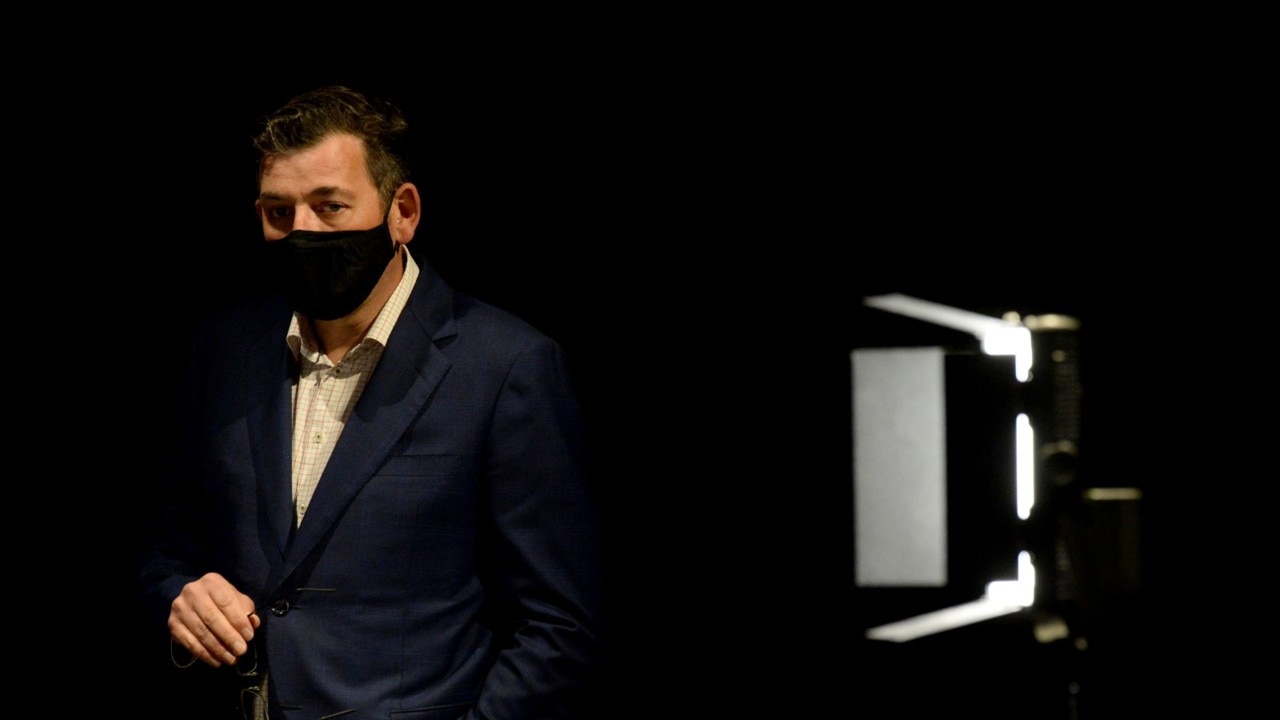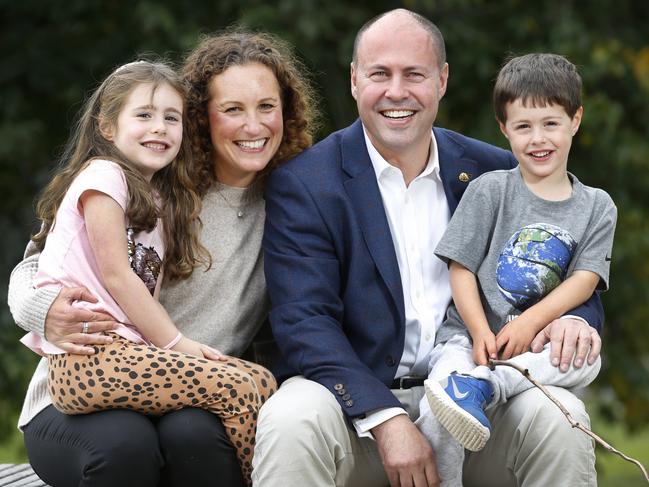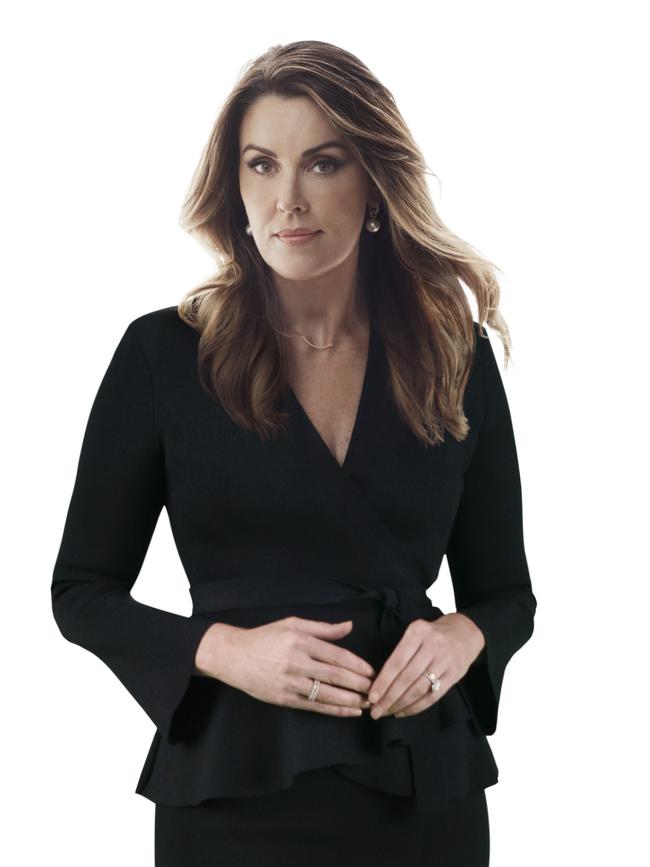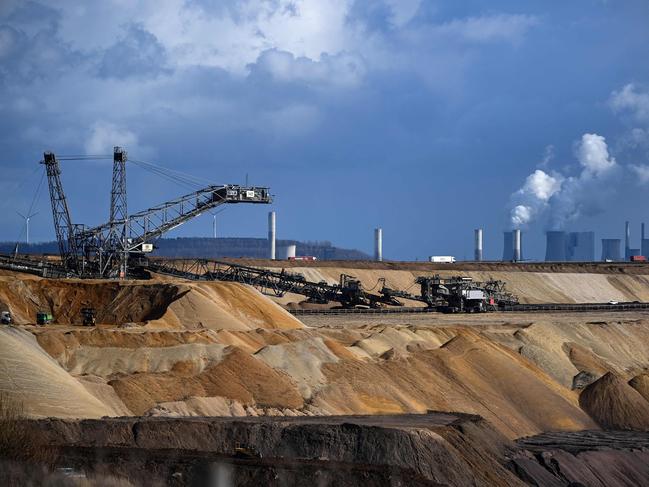Peta Credlin: Borrowing and spending big will lead to pain eventually
When Treasurer Josh Frydenberg releases the budget on Tuesday there needs to be signs that the vast pandemic spending really is temporary and targeted, writes Peta Credlin.

Opinion
Don't miss out on the headlines from Opinion. Followed categories will be added to My News.
As Treasurer Josh Frydenberg has made clear in the customary round of pre-Budget interviews and profiles, the new Liberal approach to economics in general and to budgets in particular is to spend whatever it takes to beat the pandemic and to boost jobs.
And who can deny that he’s succeeded magnificently, with statistical unemployment back to pre-virus levels and with this year’s budget deficit likely down from the forecast $200 billion to $170 billion and next year’s predicted to fall from $110 billion to (just) $70 billion. All because the government’s massive spending has boosted activity; and that in turn has boosted the tax take.
Spend more, get more; it’s that simple, it seems. You’ve got to wonder why Peter Costello and later, Joe Hockey ever bothered to try to cut federal government spending back and why Mathias Cormann subsequently laboured to hold down spending if this is all it takes?
Because saying “yes” is always easier than saying “no” and because spending money is always easier than saving it, and there’s no getting away from the fact that all government spending comes from us.

If it’s paid for by taxes, it comes from us now; and if it’s paid for by borrowing, it comes from us later. The problem with budget deficits, on the current scale and likely to extend far into the future, is that they ultimately involve asking the next generation to fund our lifestyle today.
Governments can get away with this for much longer than individuals or businesses because of their coercive power but, even for governments, put too much on the national credit card and sooner or later it all comes unstuck. Foreigners won’t lend and taxpayers revolt.
Because of the government’s previous frugality, we’re still a long way from that. As the PM and the Treasurer like to tell us, our fiscal position is better than that of nearly every other big economy.
But eventually, spending will have to be reined-in, taxes will have to go up, and/or the economy will have to grow faster in order to avoid a future shock. We know that this week’s budget will include a further big spend on aged care to meet the recommendation of the royal commission. We also know, because the Treasurer has told us so often, that there won’t be the slightest hint of “austerity” because it’s about stimulating the economy not flattening it.
And fair enough too. The economy has had more than enough flattening over the past year thanks to state-government mandated lockdowns and border closures.

What I’ll be looking for next Tuesday are signs that the vast pandemic spending really is temporary and targeted, and that the government is still interested in making the economy more productive rather than simply spending more and creating a bigger public sector. It’s a pity that bringing forward tax cuts for higher income earners is apparently off (on the grounds that the “rich” tend to save rather than to spend) because they also tend to be the ones to invest and help create prosperity. As the OECD has just confirmed, Australians face the world’s third highest income tax burden behind only Denmark and Iceland. The top 10 per cent of earners pay almost half of all income tax and the tax paid by the top one per cent equals the total paid by the lowest earning 16.5 million Australians, according to Access Economics.
It’s already been extensively reported that there’ll be hundreds of millions to boost the gas supply and to research hydrogen power. I’d prefer to see the government roll back the subsidies for renewables and end the coal phobia that has so distorted the energy market in the first place.

If he’s even asked about debt and deficit this week, the Treasurer will no doubt say that it no longer matters so much because you can borrow three times the amount for the same interest repayments. True. But eventually interest rates will return to the levels that real people (rather than central banks) would lend at. That’s when the crunch will come, not just for the people currently maximising their mortgages to drive house prices and share prices ever higher but for governments too.
After the weirdest year most of us can remember, I hope the Budget maps a return to pre-virus normal where Liberal governments saw economic reform rather than more fiscal “stimulus” as the path to greater prosperity. The government will be tempted to play-up the pandemic to give itself a leave pass on the spending and to stress how well it’s done keeping us safe. And it has. But if China’s belligerence continues to grow, even an ongoing pandemic might not be our biggest problem. Whether it’s extra social welfare spending or the climate-driven extra costs on business, we can’t keep weakening our economy, especially if we have to face a strategic challenge from China without the certainty of overwhelming US support.
WATCH PETA ON CREDLIN ON SKY NEWS, WEEKNIGHTS AT 6PM



